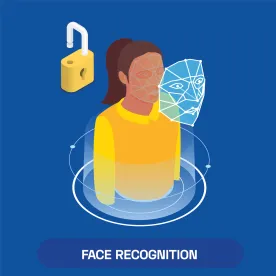On November 17, 2020, the Seventh Circuit held that allegations that a defendant violated Section 15(a) of the Illinois Biometric Information Privacy Act (“BIPA”), 740 ILCS § 14/1, et seq.—which requires an employer that collects biometric information from its employees to develop, publicly disclose and comply with a data-retention schedule and guidelines for permanent destruction of the biometric information—can constitute an “injury in fact” sufficient to confer Article III standing. Fox v. Dakkota Integrated Systems, No. 20-cv-2872. (We have blogged about BIPA-related standing issues, including the Bryant decision, here, here and here).
Background
Earlier this year in Bryant v. Compass Group USA Inc., the Seventh Circuit found that while the plaintiff employee could proceed under BIPA’s Section 15(b), she lacked Article III standing because she failed to plead a particularized injury-in-fact resulting from her former employer’s alleged failure to develop a publicly available data-retention policy pursuant to Section 15(a) of BIPA, reasoning that such duties are “owed to the public generally, not to the particular persons whose biometric information the entity collects.” 958 F.3d 617, 619, 626 (7th Cir 2020). Until the recent decision in Fox, courts interpreted the Bryant decision to hold that all Section 15(a) plaintiffs lack standing to sue in federal court.
On April 29, 2019, Plaintiff Fox filed a putative class action in Illinois state court alleging BIPA violations premised on her former employer’s alleged failure to: (i) develop, publicly disclose and comply with a policy for the retention and destruction of biometric information pursuant to Section 15(a); (ii) obtain her informed consent prior to collecting her handprint in connection with its time-keeping system pursuant to 15(b); and (iii) obtain consent to disclose her biometric information to third parties pursuant to 15(d). Dakkota removed Fox’s suit to federal court, where it successfully obtained a dismissal of the Section 15(b) and (d) claims in light of a Seventh Circuit ruling that similar BIPA claims by unionized airline employees were preempted by the Labor Management Relations Act (“LMRA”)), given that Fox was represented by a union while Dakkota employed her. The Section 15(a) claim, however, was remanded to Illinois state court for want of Article III standing pursuant to the Bryant decision. Dakotta appealed this remand decision to the Seventh Circuit.
The Seventh Circuit’s Reversal
The Seventh Circuit reversed, concluding that the Section 15(a) claim alleged a sufficiently concrete and particularized injury-in-fact because, unlike the plaintiff in Bryant, Fox alleged that Dakkota not only failed to develop and publicly disclose a data collection policy, but also unlawfully retained her biometric information after she was no longer employed.[1] The Seventh Circuit explained that:
Just as section 15(b) expressly conditions lawful collection of biometric data on informed consent, section 15(a) expressly conditions lawful retention of biometric data on the continuation of the initial purpose for which the data was collected. . . . It follows that an unlawful retention of a person’s biometric data is as concrete and particularized an injury as an unlawful collection of a person’s biometric data.
Fox, at 15.
Implications
The Fox decision opens a path to federal court that was previously thought closed to employers defending Section 15(a) BIPA claims. Indeed, it may provide employers with the option of removing such claims to federal district court where they can seek to leverage several employer-friendly BIPA decisions (including potential LMRA preemption with respect to unionized employees) and an arguably more stringent class certification analysis under Federal Rule of Civil Procedure 23.
[1] Section 15(a) requires an entity’s policy to provide for permanent destruction of biometric information either when the initial purpose of the collection has been served, or within three years of the individual’s last contact with the entity—whichever occurs first. 740 ILCS § 14/15(a). Fox alleged that the purpose behind Dakkota’s collection and retention of her handprint for its timekeeping system was served when her employment concluded.





 />i
/>i

